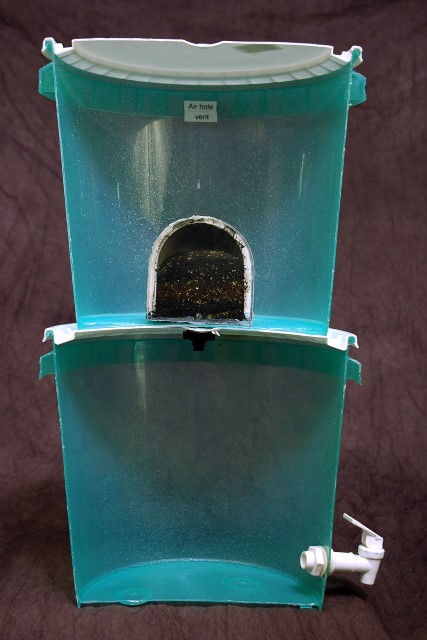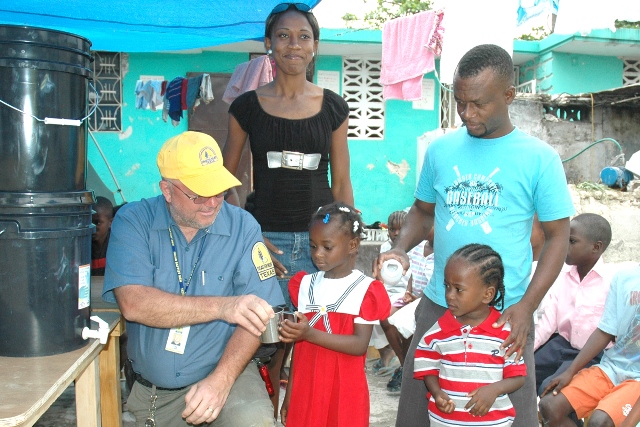By Jeff Brumley
Technologies like water purification systems designed for use by Christian missionaries are getting notice from secular agencies for their potential impact on economic development, a trend faith-based groups see as a “collateral benefit” of the doors they open to share the gospel.
Texas Baptist Men like to say they share two kinds of water when they preach the gospel in far-flung nations: the kind that brings eternal life and the kind that quenches thirst. For the first they bring Bibles. For the second they bring two-bucket ceramic filtration systems developed by a Texas company.

“As we show a family how to use it we tell them it’s free, and then we say ‘you can have another free gift,’” said BobYoung, TBM’s vice president of water ministry. “Then you tell them about living water and how Christ filters out the debris from your life.”
But Young and other experts say missions-driven advances in water filtration and other technologies are having an impact far beyond the realm of church planting and faith.
Wider recognition
A prime example is the TBM ceramic water-filter system designed by Ron Mathis, founder of Just Water, a faith-based company that designs low-cost water filters primarily for use by humanitarian and religious organizations working in Third World countries. In March, a lab registered with the Food and Drug Administration confirmed the company’s ceramic filters offer viral protection in addition to bacteria and other particles.
Mathis knows his customers very well, being Baptist himself. “I sang in a Baptist choir since I was 5 years old,” he said. But he also works with denominations ranging from Presbyterian and Methodist to Nazarenes, all eager to use the two-bucket, gravity flow system he’s designed. The system is in use in 70 nations, according to Mathis.
Mathis said he is getting interest also from the domestic emergency managers interested in his company’s water filters for use in disaster areas. One was a Texas city where a water main break deprived residents of water. An emergency management agency in Oregon has also contacted Mathis.
“We are starting to be recognized” outside the missions field, he said.
That’s happening to a range of other missions-focused companies as well, said Kieth Larrimore, appropriate technology coordinator for Equip International, a North Carolina-based ministry that trains missionaries in areas like water technologies, medical care and community health.
Larrimore said the needs of missionaries have been met by innovations that can have social and environmental impacts beyond the immediate missions focus.
One of them adapted oil-drilling technology into a well-drilling system that fits into the back of a pickup truck and takes only two people to set-up, operate and break down, Larrimore said. Its use is benefitting entire regions in nations plagued with unclean water. Its manufacturer now also sells to the commercial market.
Another development has been a medical diagnostic skills program that trains missionaries working in areas without clinics to diagnose and treat many ailments, Larrimore said.
In many of these situations opportunities exist to teach the gospel directly, he said. In other cases the sharing of faith is by example.
“We have been led to a holistic view of what Christ did,” Larrimore said. “He said he have come to preach to the poor and to clothe the naked, and he intends for us to do both.”
‘Collateral benefit’

Young of Texas Baptist Men says the group’s water ministry brings social benefits far beyond hearing the gospel.
“There are many countries where they don’t name their children until the age of 2 because so many die from waterborne diseases, worms and cholera,” Young said. “Our filters take out cholera and the rest of it, so the health benefits are going to be tremendous.”
Those benefits aren’t just being felt overseas. Disaster-response feeding units in the United States use the filters to generate cooking water.
“We are going to see a tremendous benefit as we get more and more filters out,” he said. “It’s going to be a collateral benefit that is going to help people in this and Third World countries.”
